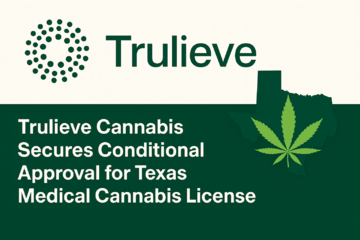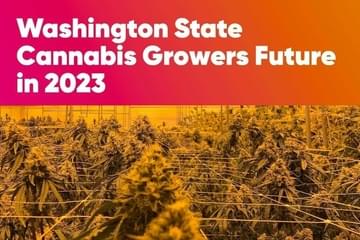
How Many Jobs are Created from Cannabis Legalization?
Published on 9/22/21
As of July 2021, cannabis is legal for adults in 18 states and Washington, D.C., and some form of medical marijuana is legal in 37. The wave of legalization has been pushed by factors such as a massive increase in societal acceptance (91% of U.S. adults think that cannabis should be legal for either medical or recreational use), an economic cash frenzy (the global legal marijuana market size is expected to hit $70.6 billion by 2028), and an acceptance that the War of Drugs has been an exercise in failure. The benefits of legalizing weed are now simply too obvious to deny or ignore.
Marijuana Legalization Benefits
Despite the long-overdue realization of the societal and economic benefits of legalizing weed at the state level, cannabis remains locked in an antiquated designation under federal law. It is classified as a Schedule I drug (alongside LSD and heroin) and considered to have no currently accepted medical use and a high potential for abuse. The absurdity of this language is only magnified by the description of such Schedule II drugs with accepted medical abuse but also defined as drugs with a high potential for abuse like OxyContin, fentanyl, cocaine, and methamphetamine. On paper, the federal government still considers cannabis to be more dangerous and addictive than opiates and meth.
That looks set to change at some point, as the economic impacts of cannabis legalization coupled with a realization of the damage that restrictive and vindictive cannabis laws have created across the country, especially in communities of color, is finally prompting Congress to commit to serious policy initiatives at the federal level. The House of Representatives passed the Medical Marijuana Research Act in December 2020 that will drastically improve access to cannabis for research. It will improve the quality and strength of weed for study by allowing researchers to use the same marijuana that is sold by state medical cannabis programs.
While that bill has yet to advance in the Senate, there is another dramatic move on Capitol Hill that could lead to a signal moment. On July 14, 2021, three U.S. Democratic senators released a discussion draft of a bill to legalize cannabis and allow American adults to buy and possess marijuana. It is called the Cannabis Administration and Opportunity Act and influential Senators Cory Booker, Chuck Schumer, and Ron Wyden are the authors. If passed, it would completely remove marijuana from the Controlled Substances Act (CSA) and allow states to determine their own cannabis laws. Any revenue generated by federal taxes would be used to support restorative justice and public health and safety research.
Cannabis Industry Jobs
 Unsplash
UnsplashThe positive economic effects of marijuana legalization are myriad. At the top of the list might be the creation and explosion of jobs in the cannabis industry. According to a recent report, there are now approximately 321,000 full-time jobs in the legal cannabis sector. That number comes after an increase of over 77,000 new cannabis jobs in the last year. The 32% increase occurred despite the difficulties presented by the COVID-19 pandemic and does not include part-time budtender jobs and other contract positions. There is also a huge ancillary economy that has developed to support the industry, with real estate, security, marketing and law among the sectors now engaged with legal cannabis. In 2020, California had almost 58,000 full-time positions, Colorado reported 34,700 legal cannabis jobs and Illinois jumped into the legal cannabis ring with 8,000 jobs.
How can cannabis help the economy at the state level? In a very robust manner, to say the least. California legalized recreational marijuana in 2016 and with the state excise tax on retail sales, the taxes on cultivators, and the accompanying fees, the state reported $1 billion in adult-use cannabis tax revenue in 2020, which was a 62% increase compared to what was collected in 2019. Of that revenue, 60% of proceeds after state program expenses goes to youth and public education programs on cannabis and responsible usage, 20% goes to environmental protection, and 20% goes to local and state government law enforcement.
In Colorado, as of April 2021, $404.5 million of the total revenue generated from cannabis taxes has been dedicated to improving Colorados public school system. In 2020, legal cannabis in Washington added an estimated $1.8 billion to the states economy. It is expected to rise to $2.12 billion in 2021. The state is using a large chunk of that revenue to fund Medicaid, which provides health insurance for low-income Washington residents.
Legal cannabis also helps state economies by drastically reducing incarceration rates for marijuana-related offenses. Keeping people in jail is very expensive, and once an individual has a criminal history, it is much harder for them to find a job. Homeless rates and the crime rate increase as the vicious cycle perpetuates. The social aspect of legalization is directly linked to the local economies and community safety.
Cannabis & Congress

Although Senators Schumer (current Senate Majority Leader), Booker and Wyden are prominent legislators and wield a fair amount of power on Capitol Hill, their bill will have to pass several tests, including a determined Republican minority to pass it. Legalization proponents remain hopeful, and the fact that it has even been proposed is seen as a great step toward federal acknowledgment of the benefits of cannabis. If it does pass, the bill would expunge non-violent marijuana crimes at the federal level, improve medical research opportunities, and allow cannabis companies access to essential financial services. Retail sales at the state level would be limited to 10 ounces of flower (or the equivalent) at one time without the fear of facing federal criminal penalties.
Do you work in the legal cannabis industry or have thoughts on cannabis legalization? Share with us below!

















